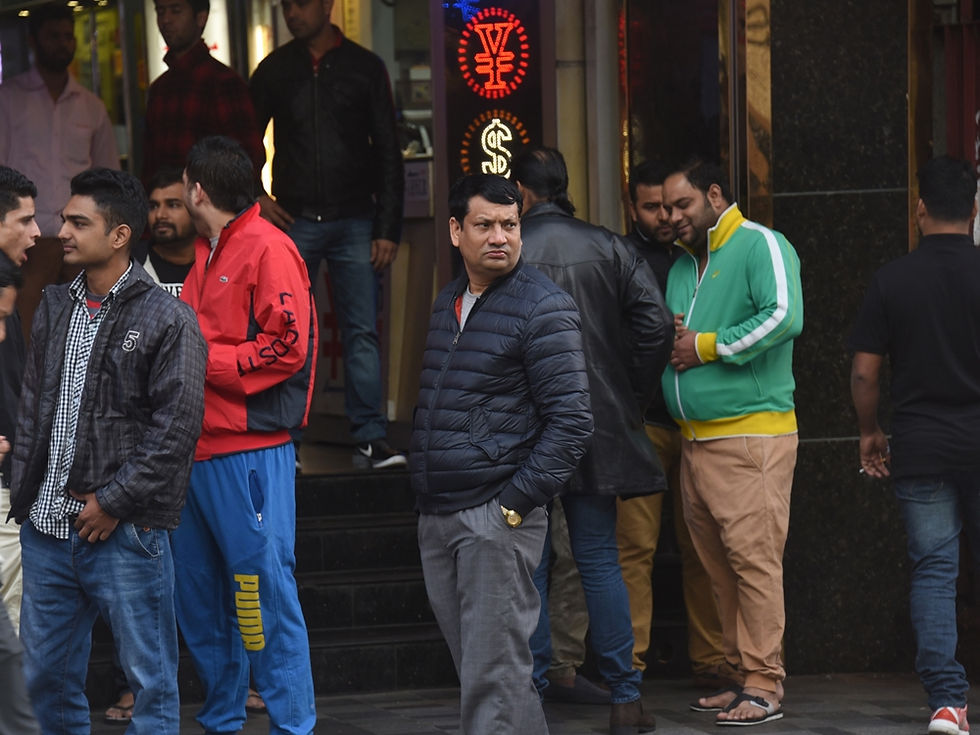Opinion - Why Hong Kong organizations should hire more ethnic minority teachers & social workers
- Nicholas Gao
- Aug 30
- 3 min read
Updated: Sep 15
Writer - Nicholas
Published August 30, 2025

Despite how diverse Hong Kong's society is, its civil service sector strangely lacks ethnic perspectives. You just don’t tend to see many minority teachers, social workers, or community leaders of varied backgrounds. The data speaks for itself. Minorities account for only 12.6% of the civil service (mostly in low-skilled jobs). Our schools are even more homogenous – just 80 of 60,000 teachers – an astonishing figure – for such a cosmopolitan city as Hong Kong.

Seeing Yourself in Teachers and Leaders
Maybe you’re wondering why this is a big deal – why does it matter that very few companies are diverse? – And the answer comes in the form of the next reframe: Children need different teachers and role models. When children see a leader of the same ethnic background and perspective, they find newfound confidence and determination - they realize they can also be a leader.
Teachers also teach cross-cultural respect from kindergarten and we want our kids to embrace that value. Mentors from various cultures are also more attuned to minority youth: they can understand what it’s like to grow up as a minority. Outside of schools, social workers and others working in the community should be part of that community.

Minorities Face Major Obstacles
The reality is that, despite what ethnic minorities are told, and even despite the growing number of people who talk about this, there are significant career obstacles for people here:
Outright discrimination - some report being told, "we don't hire your kind"
Language requirements - fluent Cantonese is needed for most jobs. Some minorities simply don't have the education or background
Hiring bias - perceived as less qualified or "not the right fit"
Workplace prejudice - feeling isolated or passed over
The playing field is still far from level. But we don't have to let this stop our effort.

Diverse Perspectives Help All
Minority professionals draw on their cultural experiences to bring fresh viewpoints and insights.
This benefits schools and organizations tremendously. Different lenses would reveal blind spots and fragilities. Policy and programming would become more creative and better serve all groups.
Incorporating minority voices is a practical way to understand and address the needs of our thriving multicultural population. It's a win-win indeed when organizations proudly carry the banner of multiculturalism and welcome it into their institutions.
Having more and more ethnic minority teachers, social workers, and community leaders does much to strengthen the idea of genuine inclusivity. As it stands, the dearth of minority representation reinforces a narrowly defined understanding of what it means to be Chinese. It sends an indirect message to ethnic minority residents that only ethnic Chinese people belong in positions of social shaping.
Also, greater diversity in those elite jobs helps confound that caricature in the next generation's minds: ‘I might be a minority,’ it says to them, ‘but that doesn’t make me any less of a proud, engaged Hong Konger.’
Reduces Bias and Racism
More contact with minority professionals and high achievers also combats the unconscious biases that many of us have, whether or not we’re aware of them.
This is also relevant because ethnic minorities are underrepresented in hiring pools and often relegated to work that pays poorly. Such underrepresentation maintains mythical prejudices that minorities can’t cut it in prestigious jobs, leading to a vicious cycle.
However, promoting greater diversity directly confronts those toxic prejudices. Sharing ideas with successful minority leaders – teachers, social workers, government officials, or police officers – offers people a concrete example of what they can be. It forces colleagues to reassess distorted assumptions.

Time for Hong Kong to Take Action
We need to do something to keep our ideals of diversity and equal opportunity alive. Here are three key steps organizations (and individuals) across Hong Kong can take:
Reflect on Hidden Biases
Institutions should consider their own quiet biases. Are job qualifications excluding minority candidates? Is language discouraging a diverse pool of candidates? A little introspection goes a long way.
Build Inclusive Work Culture
It's not enough to just hire minorities. Organizations must make them feel welcomed, valued, and able to thrive. Having zero tolerance for discrimination and prejudice is crucial. Different cultural celebrations such as Lunar New Year and Diwali can be integrated into the working calendar.
Set & Meet DEIJ Targets
Specific minority representation targets help focus efforts and drive results. Governments and organizations should set goals across all levels and commit resources to achieving them.

Final Thoughts
It will not be easy to morph Hong Kong’s current workforce blend. Our ideals of equitable opportunity—our aspiration to be a truly multicultural society—will require hard work and lasting commitment. We need to open up access and representation at all levels to create a Hong Kong that welcomes everyone.



